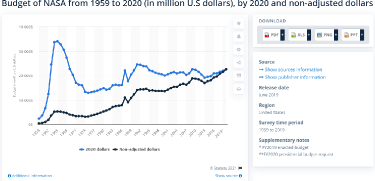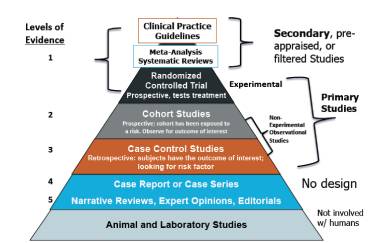
[ Return ] [ Entire Thread ] [ Last 50 posts ]



| >> | No. 8631
8631
I think I have a substantial gap in my knowledge that exists somewhere between personal finance and economics. Let me explain: |
| >> | No. 8632
8632
There is no particular route to becoming wealthy, if there was then everyone would do it. You can do a lot of the things you mention to optimise your chances but in the end that's all it is; chance. The right industries to work in varies depending on where and when you are. Sometimes having a niche works, sometimes you have better luck if you diversify. |
| >> | No. 8633
8633
Wealth in this sense comes from earning money from means other than your own labour. |
| >> | No. 8634
8634
>>8632 |
| >> | No. 8635
8635
>>8634 |
| >> | No. 8636
8636
>>8635 |
| >> | No. 8637
8637
fff055c397b6fd0031368fa630bbd08f.jpg   
>How do people become wealthy? |
| >> | No. 8638
8638
>>8636 |
| >> | No. 8639
8639
0_Huddersfield-born-Yorkshire-Shepherdess-Amanda-O.jpg   
The answer is to marry someone rich and much older than you, proclaim your newfound wealth to be self-made and then call everyone else lazy for not being able to follow your path. |
| >> | No. 8640
8640
>>8636 |
| >> | No. 8641
8641
>>8637 |
| >> | No. 8642
8642
I'm curious how you'd account for factors that involve a risk-reward trade off. |
| >> | No. 8643
8643
>>8642 |
| >> | No. 8644
8644
>>8639 |
| >> | No. 8645
8645
>>8644 |
| >> | No. 8647
8647
>>8645 |
| >> | No. 8648
8648
>>8647 |
| >> | No. 8649
8649
>>8645 |
| >> | No. 8651
8651
>>8649 |
| >> | No. 8652
8652
>>8651 |
| >> | No. 8655
8655
Work in sales. That's the job that pays 100 grand a year with very little effort, if you're good at it. If you're not, then that's a shame because I honestly don't think it's possible to get good at it if you aren't naturally that sort of person. |
| >> | No. 8665
8665
>>8655 |
| >> | No. 8666
8666
>>8665 |
| >> | No. 8667
8667
>>8666 |
| >> | No. 8668
8668
>>8667 |
| >> | No. 8677
8677
1588170687766.jpg   
>>8666 |
| >> | No. 8679
8679
>>8667 |
| >> | No. 8681
8681
>>8679 |
| >> | No. 8682
8682
>>8677 |
| >> | No. 8683
8683
>>8679 |
| >> | No. 8684
8684
Exsctly. Putting £150 a month into a fund that makes on average 15% a year for 30 years and you're at a million no bother. |
| >> | No. 8686
8686
>>8679 |
| >> | No. 8687
8687
>>8686 |
| >> | No. 8688
8688
>>8687 |
| >> | No. 8689
8689
>>8687 |
| >> | No. 8690
8690
Untitled.png   >>8689 |
| >> | No. 8691
8691
>>8690 |
| >> | No. 8692
8692
>>8691 |
| >> | No. 8694
8694
>>8691 |
| >> | No. 8695
8695
>>8694 |
| >> | No. 8696
8696
_117003116_perserverance_landing_x2_640-nc.png   
>>8695 |
| >> | No. 8697
8697
parachute-with-figure-soldier-toy-for-kids.jpg   
>>8696 |
| >> | No. 8698
8698
>>8689 |
| >> | No. 8699
8699
>>8698 |
| >> | No. 8700
8700
OP here. I just spent a good bit of my morning searching for this using key phrases like "social mobility without inheritance", "social mobility of the nouveau riche", "sociological studies of wealth accumulation", "wealth accumulation among poor households", etc. in academic and non-academic search engines. |
| >> | No. 8701
8701
>>8700 |
| >> | No. 8702
8702
>>8631 |
| >> | No. 8703
8703
>>8702 |
| >> | No. 8704
8704
>>8703 |
| >> | No. 8705
8705
molesworth.jpg   
>>8704 |
| >> | No. 8706
8706
Have you answered to yourself where being rich turns into wealth? Because the latter has some connotations that matter. |
| >> | No. 8709
8709
>>8706 |
| >> | No. 8852
8852
6253666696_473a07a266_b_OR3xqZH.width-800.jpg   
I was looking into this topic again today and recalled a powerfully honest article written by someone that earned what they call a "private basic income", i.e. they'll never have to work again. He seems to want to communicate the absurdity of his situation: |
| >> | No. 8853
8853
>>8852 |
| >> | No. 8854
8854
>>8853 |
| >> | No. 8855
8855
>>8852 |
| >> | No. 8856
8856
>>8854 |
| >> | No. 8857
8857
image_2021-06-14_100707.png   
>>8855 |
| >> | No. 8860
8860
>>8855 |
| >> | No. 8861
8861
download (10).jpg   
>>8860 |
| >> | No. 8862
8862
>>8861 |
| >> | No. 8863
8863
There's certainly a large amount of luck involved, because whatever guide you wind up with, there will be thousands of people who did everything on it and aren't millionaires. One thing that I think hasn't been mentioned yet is passion: people say you need to work hard, but you need to enjoy it too. Stephen Hendry spent his whole life on a snooker table and was world champion seven times. Sergio Aguero stayed late at football training every day until he was better at football than Bojan Krkic is, or you are. But what if they had swapped places? Would Sergio Aguero be a snooker champion and Stephen Hendry lifting the World Cup for Scotland? I doubt it enormously. They had the drive to succeed at what they wanted, but they also had the passion to enjoy it in the first place. I'm willing to guess that most of us, in our jobs, have bosses who love what we do more than we do. They'd do it at home for free if they could, and that's why they're good enough at it to get paid more than we do. But their drive to do our jobs does not translate into drive to be the world's best Cubist painter or Love Island contestant. In the end, it's just a question of personality. |
| >> | No. 8864
8864
>>8863 |
| >> | No. 8865
8865
>>8863 |
| >> | No. 8866
8866
I distinctly remember watching some video of some quality control people on an assembly line in the 70s or 80s testing electronics and thinking that if they had the radio on it would be my ideal job: boring, predictable, rote actions (plug it in, if it loads then box it, if it doesn't then chuck it) that you could do while daydreaming away to yourself. Unfortunately jobs like that no longer seem to exist (insofar as they ever did), so you're stuck with stuff that demands a much higher level of engagement and awareness, making it much more difficult to just compartmentalise away work and then come home to live your life. |
| >> | No. 8867
8867
>>8866 |
| >> | No. 8868
8868
>>8865 |
| >> | No. 8869
8869
>>8866 |
| >> | No. 9540
9540
I'm still on the lookout for research on this subject and chanced (heh) upon this article from a bunch of MIT maths wonks: https://arxiv.org/abs/1802.07068 |
| >> | No. 10119
10119
https://www.fca.org.uk/news/press-releases/more-people-have-bank-accounts-one-ten-have-no-cash-savings |
| >> | No. 10120
10120
>>10119 |
[ Return ] [ Entire Thread ] [ Last 50 posts ]

|
Delete Post [] Password |